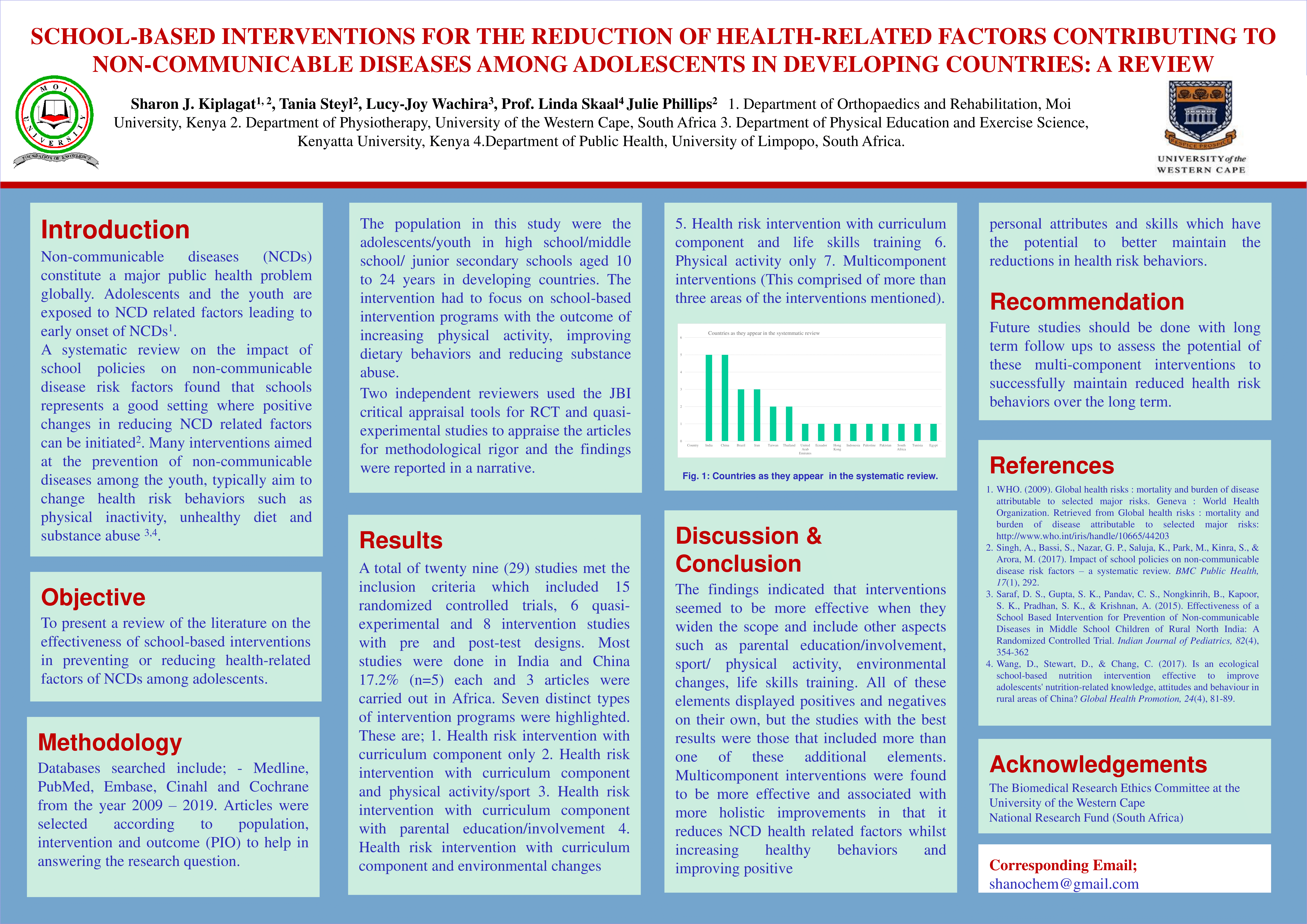Conference 2021 Poster Presentation
Project title
School-based interventions for the reduction of health-related factors of non-communicable diseases among adolescents in developing countries: A Revie
Authors and Affiliations
Sharon J. Kiplagat1,2, Tania Steyl2, Lucy-Joy Wachira3, Prof. Linda Skaal4 , Julie Phillips2
1 .Department of Orthopaedics and Rehabilitation, Moi University, Kenya
2. Department of Physiotherapy, University of the Western Cape, South Africa
3. Department of Physical Education and Exercise Science, Kenyatta University, Kenya
4. Department of Public Health, University of Limpopo, South Africa.
Abstract
Background
Non-communicable diseases (NCDs) constitute a major public health problem globally. Adolescents and the youth are exposed to NCD risk factors leading to early onset of NCDs. Schools represents a good setting where positive changes in reducing NCD risk factors can be initiated. Many interventions aimed at the prevention of non-communicable diseases among the youth, typically aim to change health risk behaviors such as physical inactivity, unhealthy diet and substance abuse.
Methods
A comprehensive systematic search of all studies measuring the effectiveness of school-based interventions in preventing or reducing health-risk factors (diet, physical activity and substance abuse) of NCDs among adolescents/youth from January 1st, 2009 through October 31st, 2019 was conducted in specific electronic databases: MEDLINE, PubMed, EMBASE, CINAHL and COCHRANE databases. The references of identified studies and systematic reviews were reviewed including an informal search on google scholar.
Results
A total of twenty nine (29) studies met the inclusion criteria and were evaluated. Seven distinct types of intervention programs were highlighted. These are; health risk intervention with curriculum component only; health risk intervention with curriculum component in addition to one of the following;- physical activity/sport, parent education/involvement, environmental changes and life skills training; physical activity only and lastly, multicomponent interventions which comprised of more than three areas of the interventions mentioned.
Conclusions
The findings indicated that interventions seemed to be more effective when they widen the scope and include other aspects such as parental education/involvement, sport/ physical activity, environmental changes, life skills and multi-component interventions. All of these elements displayed positives and negatives on their own, but the studies with the best results were those that included more than one of these additional elements.

